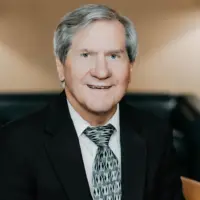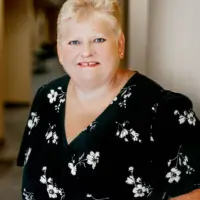About HINDS Behavioral Health Services – The Cedars
Since 1971, Hinds Behavioral Health Services has been helping kids to seniors with everything from mental health to substance use issues. The Cedars is located in a quiet corner of Jackson, Mississippi, and is part of their mission. They provide psychosocial rehab for seniors 50 and older who have developmental challenges.
It’s a place where older folks can improve their social skills, learn daily living skills, and connect with their peers. But Hinds doesn’t stop there. They have other locations where adults can get mental healthcare, including addiction treatment.
Personalized Support Right Where You Are
If keeping up with appointments feels like a challenge, the Program of Assertive Community Treatment (PACT) brings care right to you. This includes snacks and meals. It’s a flexible, community program that helps adults with dual diagnoses get personalized treatment.
The PACT team meets with you at least three times a week. They can join you either at your home or somewhere else in the community.
Addiction Treatment That Comes to You
If getting to an office feels impossible, the Intensive Community Outreach and Recovery Team has your back. If you’re an adult living in rural Hinds County, this team brings mental health and addiction treatment straight to your door or meets you virtually.
You get therapy, help with managing medications, and learn life skills like budgeting and self-care. They’re even on call 24/7 for emergencies. They meet you where you are to help you move forward.
A Compassionate Approach to Recovery
Their medication assisted treatment (MAT) blends medication with counseling and therapy to treat opioid and substance use disorders. Medications like naltrexone or buprenorphine help reduce withdrawal symptoms and cravings. Counseling and peer support help you stick with your recovery program.
It’s also neat that Jackson has some neat local attractions to supplement your recovery. Manhattan Park is just down the street, and Hanging Moss Creek isn’t too far away if you want to stretch your legs.
Rehab Score
Location
Other Forms of Payment
Self-pay involves paying for treatment out of your own pocket. You can use savings or credit, get a personal loan, or receive help from family and friends to fund your treatment. If you don't have insurance or your insurance plan doesn't cover a specific program, self-pay can help ensure you still get the care you need.
Sliding scale payments are based on a client's income and family size. The goal is to make treatment affordable to everyone. By taking these factors into account, addiction recovery care providers help ensure that your treatment does not become a financial burden to you or your family, eliminating one barrier to care.
Medicaid is a state based program that helps lower-income individuals and families pay for healthcare. Medicaid covers addiction treatment so those enrolled can use their coverage to pay for rehab. When a program accepts Medicaid the client often pays very little or nothing out of their own pocket.
Medicare is a federal program that provides health insurance for those 65 and older. It also serves people under 65 with chronic and disabling health challenges. To use Medicare for addiction treatment you need to find a program that accepts Medicare and is in network with your plan. Out of pocket costs and preauthorization requirements vary, so always check with your provider.
Addiction Treatments
Levels of Care
Outpatient Programs (OP) are for those seeking mental rehab or drug rehab, but who also stay at home every night. The main difference between outpatient treatment (OP) and intensive outpatient treatment (IOP) lies in the amount of hours the patient spends at the facility. Most of the time an outpatient program is designed for someone who has completed an inpatient stay and is looking to continue their growth in recovery. Outpatient is not meant to be the starting point, it is commonly referred to as aftercare.
Treatments
Mental health rehabs focus on helping individuals recover from mental illnesses like bipolar disorder, clinical depression, anxiety disorders, schizophrenia, and more. Mental health professionals at these facilities are trained to understand and treat mental health issues, both in individual and group settings.
Clinical Services
Creativity is inherently healing, and can help those in recovery express thoughts or feelings they might not otherwise be able to. Creative arts therapy can include music, poetry/writing, painting, sculpting, dance, theater, sandplay, and more. Unlike traditional art, the final product matters far less than the experience of creation and expression itself.
Research clearly demonstrates that recovery is far more successful and sustainable when loved ones like family members participate in rehab and substance abuse treatment. Genetic factors may be at play when it comes to drug and alcohol addiction, as well as mental health issues. Family dynamics often play a critical role in addiction triggers, and if properly educated, family members can be a strong source of support when it comes to rehabilitation.
Group therapy is any therapeutic work that happens in a group (not one-on-one). There are a number of different group therapy modalities, including support groups, experiential therapy, psycho-education, and more. Group therapy involves treatment as well as processing interaction between group members.
In individual therapy, a patient meets one-on-one with a trained psychologist or counselor. Therapy is a pivotal part of effective substance abuse treatment, as it often covers root causes of addiction, including challenges faced by the patient in their social, family, and work/school life.
Recreational therapy (aka therapeutic recreation) uses creative and fun activities to help with addiction recovery. Recreational therapists lead patients in entertaining and engaging activities like sports or games; art (drawing, painting, sculpture); drama, music, and dance; and/or community outings (field trips) to improve patients' physical, social, and emotional well-being.
Amenities
-
Private Transportation
Staff

Dr. Buddy Wagner
President

Dr. Jesse Killingsworth
Secretary & Treasurer

Cathy Luckett
Director of Administrative Services

Kathy Crockett, PhD, PhD, MPH
HBHS Executive Director
Contact Information
5410 Executive Place
Jackson, MS 39206
